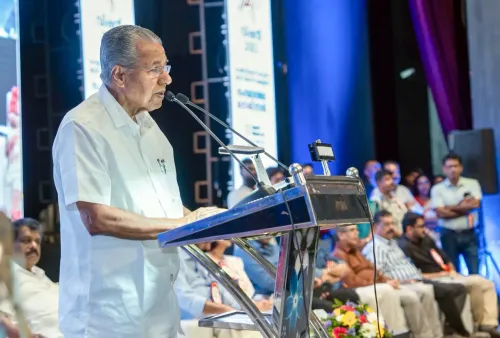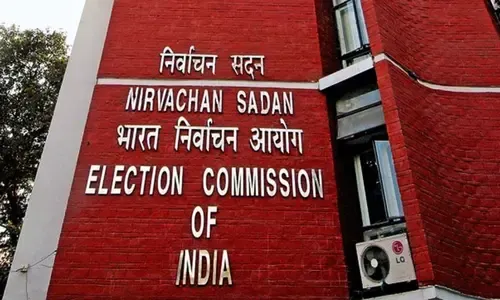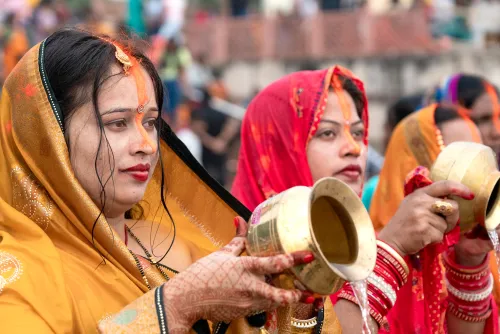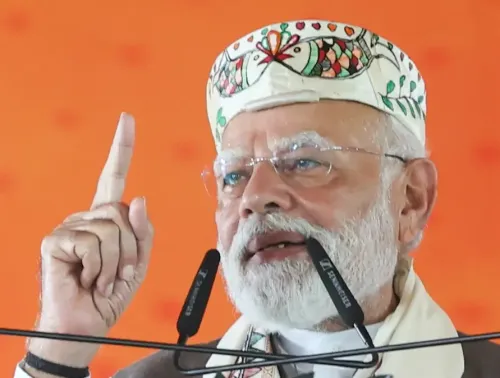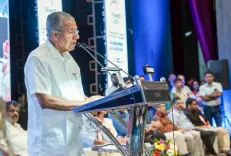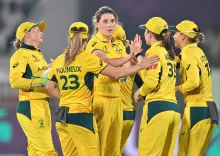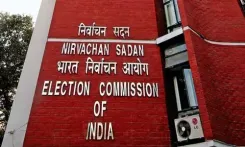Supreme Court to Continue Hearing on Petitions Against Waqf Amendment Bill Today
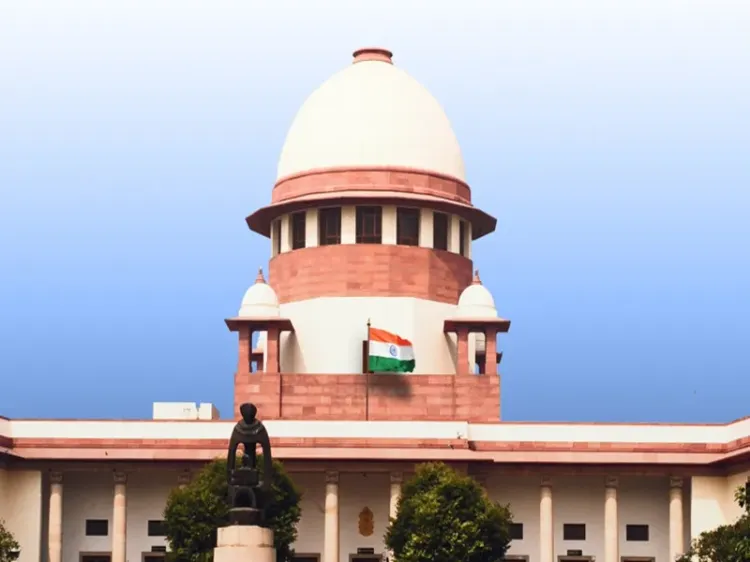
Synopsis
Key Takeaways
- The Supreme Court is hearing petitions against the Waqf (Amendment) Act, 2025.
- Concerns raised about the validity of properties declared as Waqf.
- Debate over the composition of the Waqf Council.
- Violence in West Bengal linked to the Waqf amendments.
- Legal arguments presented by distinguished advocates.
New Delhi, April 17 (NationPress) The Supreme Court will resume hearings on a series of petitions contesting the constitutional validity of the Waqf (Amendment) Act, 2025 today, Thursday.
The proceedings are scheduled for 2 p.m.
A panel including Chief Justice Sanjiv Khanna along with Justices Sanjay Kumar and K.V. Viswanathan showed readiness to issue a notice regarding the petitions and deliver a brief order.
Nevertheless, the Centre and several states requested additional time to present their arguments prior to any interim orders being issued.
During the session, the court raised three significant issues: the legitimacy of Waqf by user properties previously recognized by court decrees that may now be rendered void, the presence of non-Muslims as majority members within the Waqf Council, and the ongoing investigation by the collector concerning disputed Waqf properties, with a declaration that these would not be classified as Waqf properties.
Following the hearing, CJI Sanjiv Khanna expressed alarm over the violent incidents occurring in West Bengal in response to the amendments to the Waqf Act.
"What is particularly troubling is the violence unfolding. If this matter is still pending here, it should not be happening," remarked the CJI.
The Supreme Court suggested that properties recognized as Waqf, including those categorized as wakf by user, should not be de-notified; however, the Centre opposed this idea and requested a hearing before any such order is made.
The top court also inquired whether Muslims could participate in Hindu religious trusts.
"All properties recognized by the courts as Waqf must retain their status, regardless of whether they are classified as Waqf by user or through a formal deed, while the challenge to the Waqf Amendment Act 2025 is being deliberated," stated the bench.
Furthermore, the court emphasized, "All members of the Waqf boards and the central Waqf Council should be Muslims, with the exception of ex-officio members."
Initially, the bench contemplated referring the petitions to a single high court but subsequently engaged in an extensive discussion with numerous senior advocates, including Kapil Sibal, Abhishek Manu Singhvi, Rajeev Dhawan, and Solicitor General Tushar Mehta, representing the Centre.
The CJI also proposed a ruling stating that ex-officio members could be appointed regardless of their faith, but all other members must be Muslim.
The court challenged Mehta on how wakf by user could be prohibited, considering that many individuals may lack the necessary documentation to formally register such waqfs.
"Waqf by user" denotes a practice where a property is acknowledged as a religious or charitable endowment based on its long-term, uninterrupted use for those purposes, even without a formal written declaration of waqf by its owner.
"How will you register such Waqfs by user? What documents will they possess? This could lead to the reversal of established practices. While misuse may exist, genuine cases also need consideration. I have reviewed Privy Council judgments that recognize Waqf by user. If you negate this, it will create complications. The legislature cannot declare a judgment, order, or decree void; it can only use it as a reference," the bench remarked.
Mehta noted that a joint parliamentary committee held 38 sessions and reviewed 98.2 lakh memorandums before the legislation was passed by both houses of Parliament.
At the onset of the hearing, the CJI stated, "There are two key issues we wish both sides to address. First, should we handle this matter or delegate it to the high court? Second, succinctly outline what you are advocating? We are not implying any restriction on the Supreme Court considering or resolving petitions against the law."
Sibal, representing the petitioners, referenced the Waqf Amendment Act, arguing against the provision stipulating that only Muslims can establish waqf.
"How can the state determine whether I am a Muslim and eligible to create waqf?" questioned Sibal.
He continued, "How can the government stipulate that only those practicing Islam for the past five years can create waqf?"
Senior advocate Abhishek Manu Singhvi, representing some petitioners, asserted that the Waqf Act would have nationwide implications, arguing against referring the petitions to the high court.
Senior advocate Huzefa Ahmadi, opposing the Waqf Act, argued that Waqf by user is an established Islamic practice that cannot be revoked.
The Centre recently announced the Waqf (Amendment) Act, 2025, which received the assent of President Droupadi Murmu on April 5 after passing through Parliament amid heated debates in both houses.
The Bill was approved in the Rajya Sabha with 128 votes in favor and 95 against, while in the Lok Sabha, it garnered 288 votes for and 232 against.
As many as 72 petitions, including those from AIMIM leader Asaduddin Owaisi, All India Muslim Personal Law Board (AIMPLB), Jamiat Ulama-i-Hind, Dravida Munnetra Kazhagam (DMK), and Congress MPs Imran Pratapgarhi and Mohammad Jawed, have been filed contesting the Act’s validity.
On April 8, the Centre lodged a caveat in the Supreme Court and requested a hearing before any ruling is made regarding the case.
A caveat is submitted by a party in high courts and the Supreme Court to ensure no orders are enacted without its hearing.

